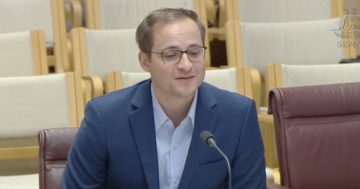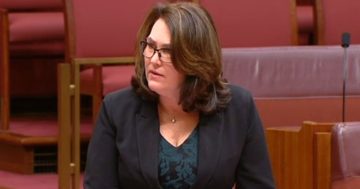
Consultants to the APS are being scrutinised like never before. Photo: File.
Consultants to the Australian Public Service are keeping a close eye on parliamentary hearings into their profession, with fears growing over how far a government clampdown might reach.
The Senate Finance and Public Administration References Committee wound up its first round of hearings into the integrity of consultants in the APS, having heard numerous accounts of the adverse impact external contractors have had on the service.
The parliamentary committee will convene again next month to hear further evidence.
In the meantime, consultancy firms are rushing to lock in lucrative contracts before things sour further.
They are also being more proactive in touting the value external consultants bring to the APS.
With the Federal Government already well into its plan to reduce the consultancy spend in the APS, and some stark examples of dodgy practices being revealed, contractors are having their work scrutinised more than ever before.
“We are in front of the Government all the time at the moment,” one high-level consultant told Region.
“We need to put our best foot forward and let them know what important services we can provide.
“But we also know we have an image problem.
“Consulting to the Government isn’t going away, by any means. It’s too entrenched.
“But the world as we know it is changing.”
The Senate inquiry was sparked after a former PricewaterhouseCoopers partner was banned as a tax agent for sharing confidential Treasury information with colleagues and, by extension, clients of his own firm.
The unethical behaviour resulted in Government threats to exclude PwC from future confidential briefings and calls for a review of all the Big Four accountancy firms’ contract work for the APS.
PwC’s role in Robodebt has also been highlighted, with the royal commission into the automated debt recovery scheme being told the consultancy firm withheld from the government vital information about problems with the illegal program.
The Senate inquiry, however, heard from a string of experts expressing concerns over the impact wholesale contracting is having on the APS.
Former APS commissioner Andrew Podger told the inquiry that extensive outsourcing of IT had caused a systemic loss of capability in the APS that would take significant time and money to restore.
“Is there an IT profession we ought to have?” Professor Podger asked.
“What would that look like and what does the private market look like in that place? And what should we pay to make sure we are attracting and retaining the people we need?”
Addressing the argument that the APS can’t attract the people with the right skills in the numbers required in the current competitive jobs market, Professor Podger suggested the service should lift its game.
“I think the public service remuneration arrangements we’ve got at the moment are not designed to get the best, to attract, develop and retain the best talent,” he said.
“We’ve gone down a route of allowing each agency to have their own pay arrangements.
“We’ve had weird and wonderful rules around that, but no reflection on what the markets require and no basis for doing that.”
The Community and Public Sector Union told the inquiry that over-reliance on consultants had opened the way for conflicts of interest in the APS.
Assistant national secretary Michael Tull said the CPSU wasn’t advocating an end to the use of consultants in the public service, but for a more prudent application of external contracts.
“The reality is that consulting to government has become a multi-billion-dollar business,” Mr Tull said.
“It’s a business that’s rife with potential conflicts of interest.
“The public has seen regular news reports of scandals and questionable behaviour by consultants, and these reports and the public scepticism they generate really do undermine trust in government and public institutions.”
The Australia Institute used the inquiry to call for the banning of consulting firms that leak confidential information and breach the public trust.
The institute’s democracy and accountability director Bill Browne said such firms should not be able to win future government contracts.
“Consulting firms charge through the roof for advice that is often simplistic, flawed or self-interested – or has been specifically commissioned to further the government’s preconceived agenda,” Mr Browne said.
“Consultants seem to have no moral qualms about taking public money to deliver advice that is against the public interest.
“At their worst, consulting firms have leaked confidential government information to drum up business and potentially help their multinational clients avoid paying millions of dollars in tax.”




















